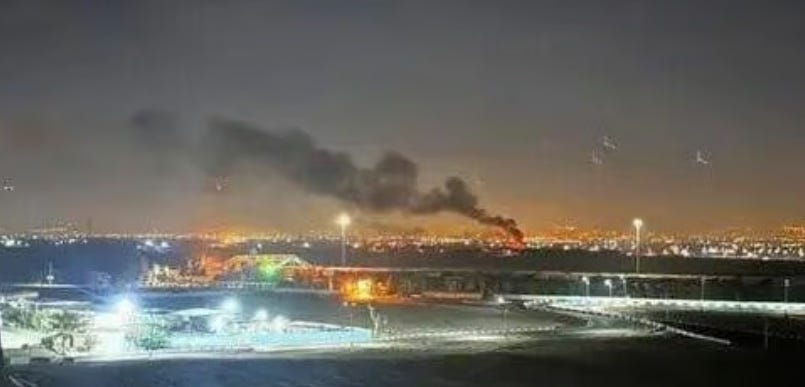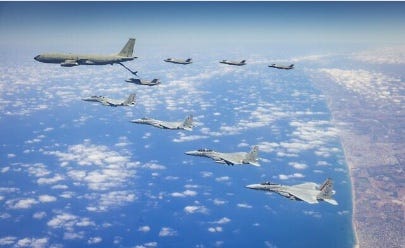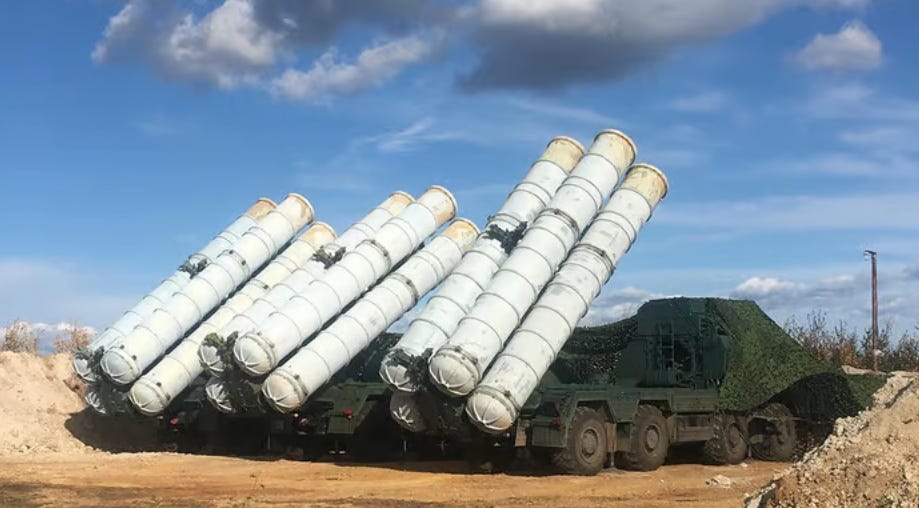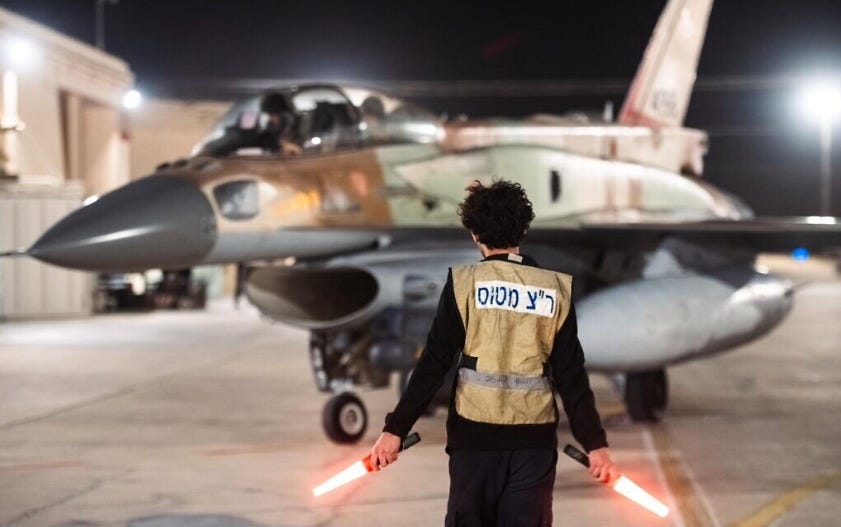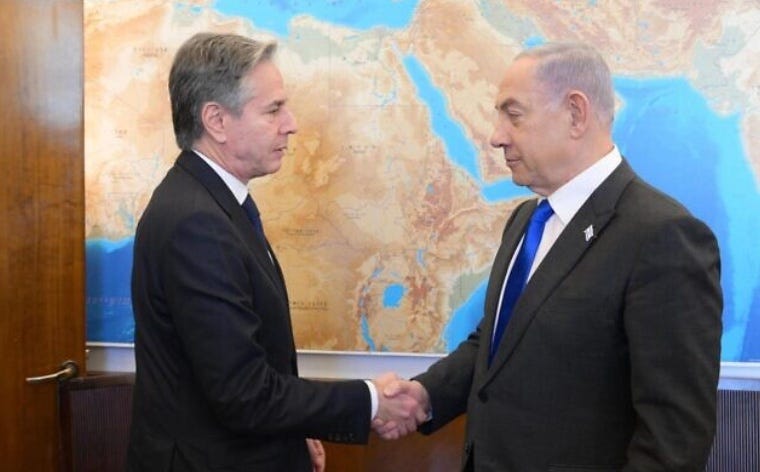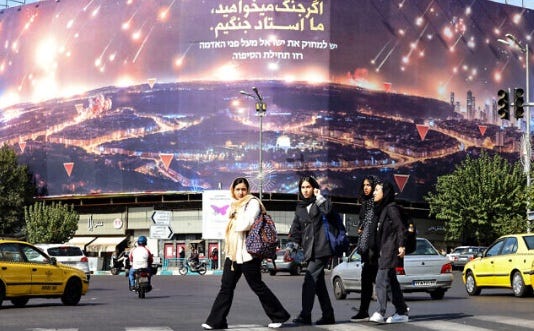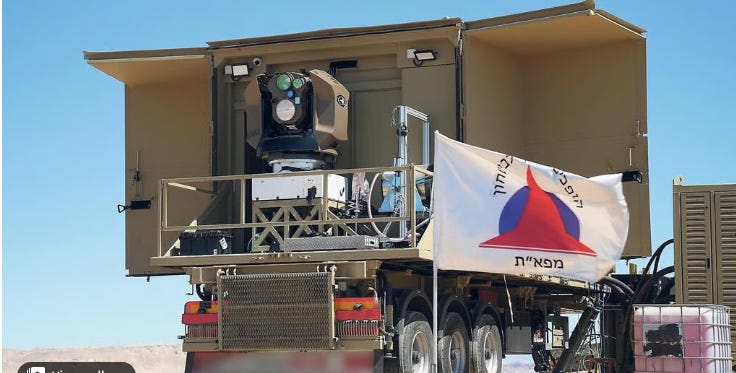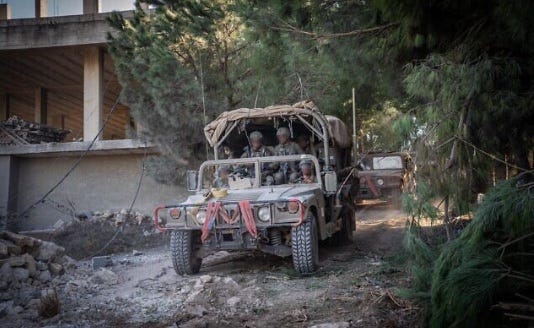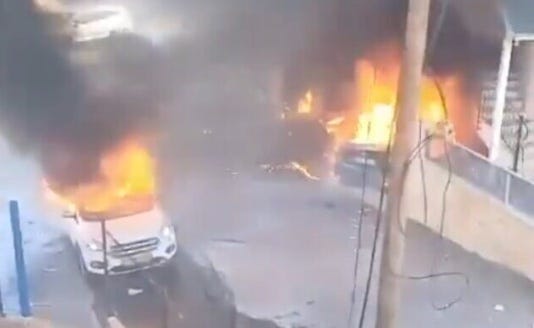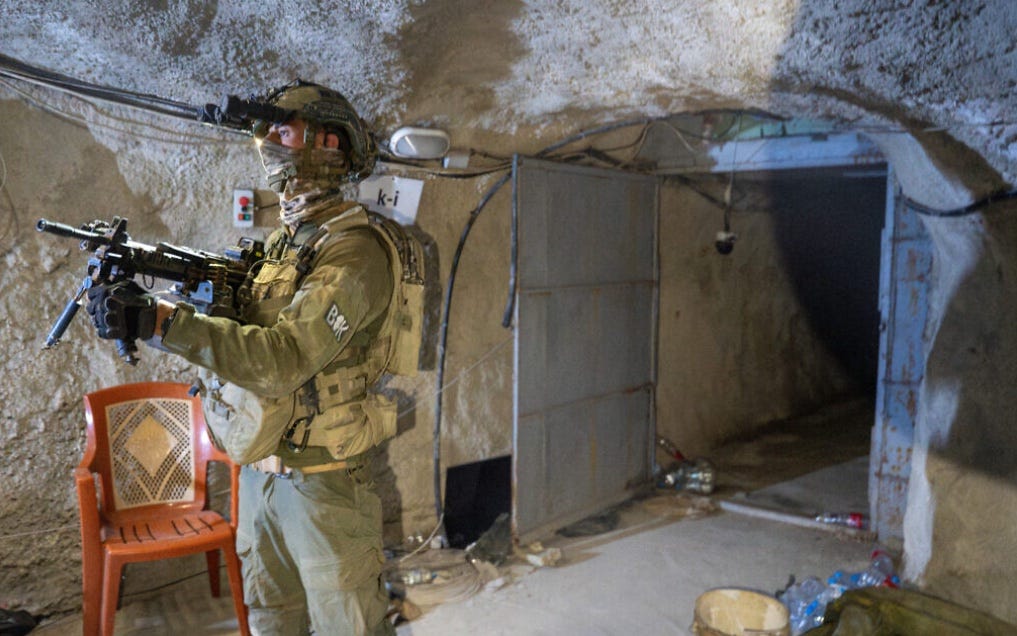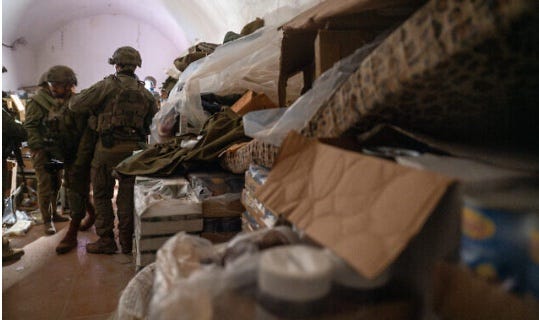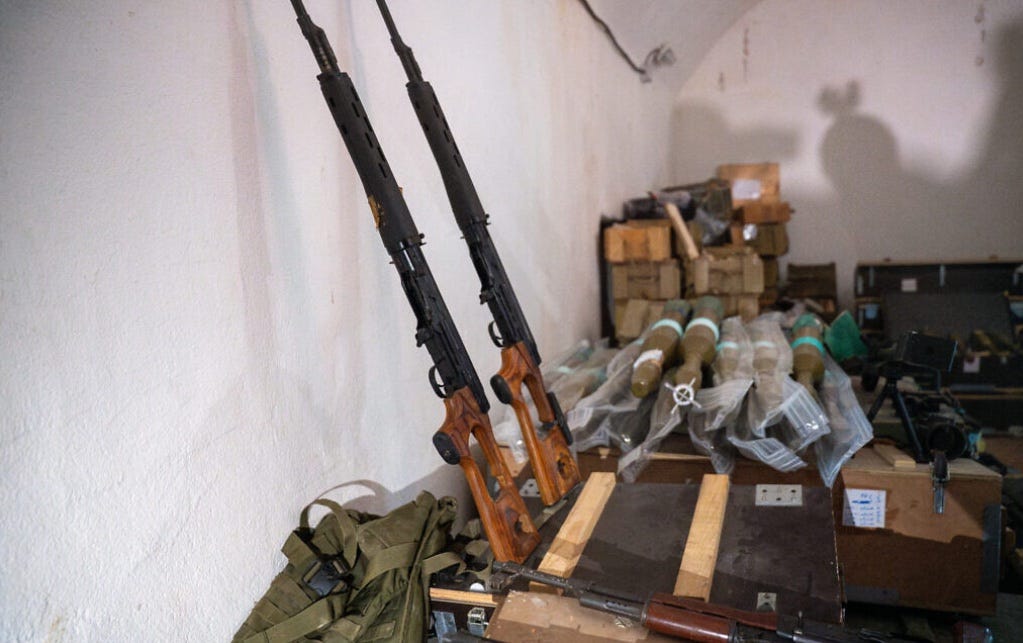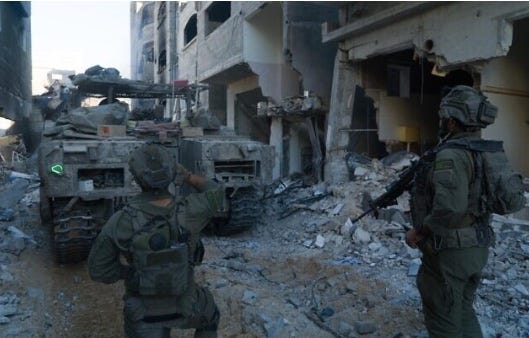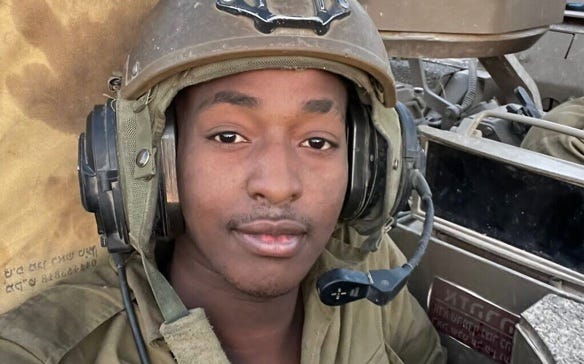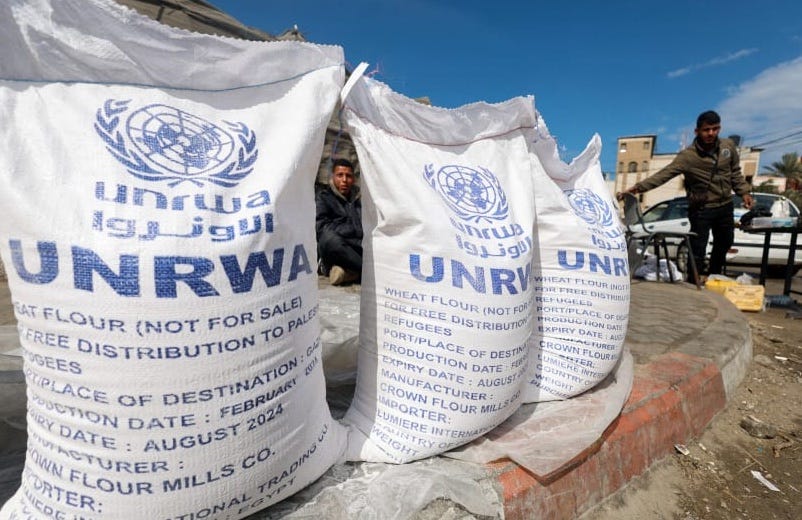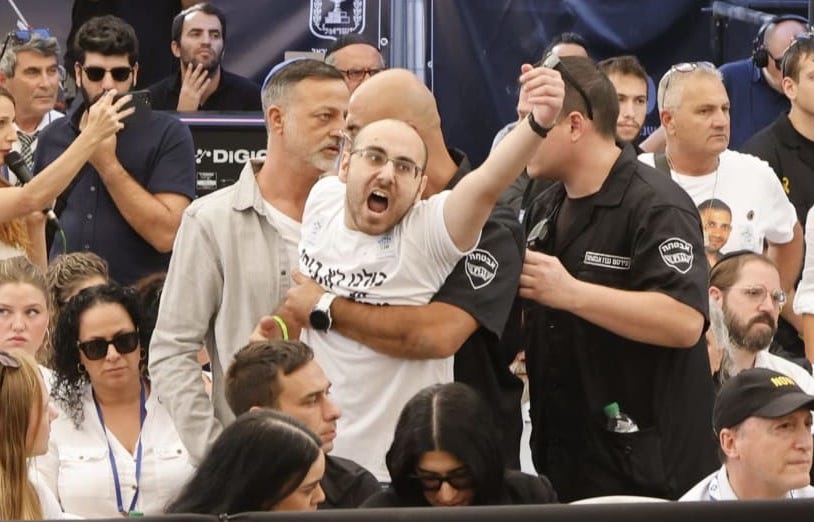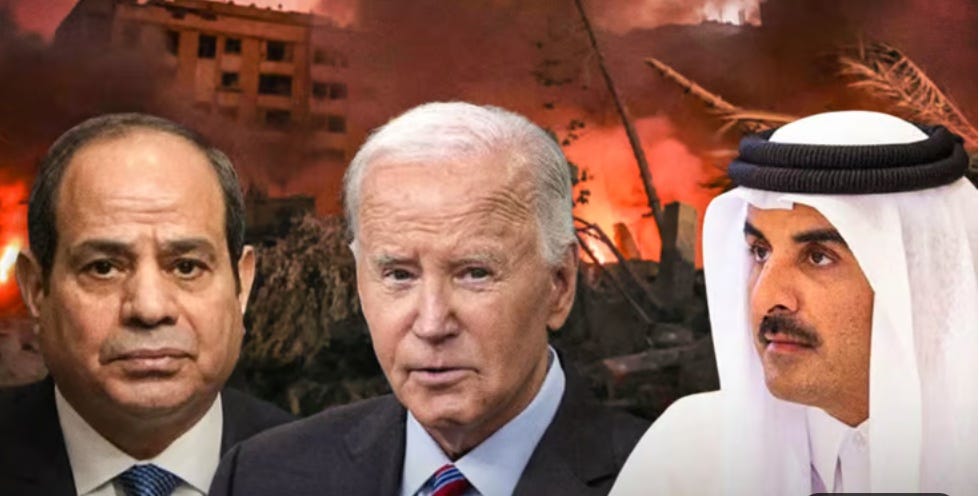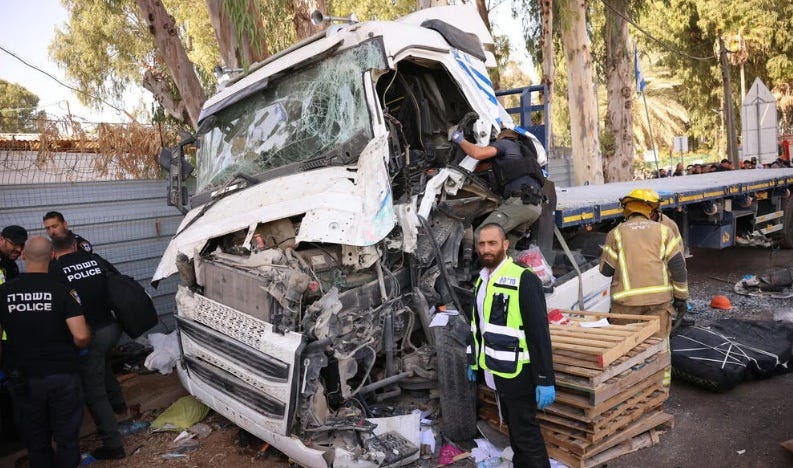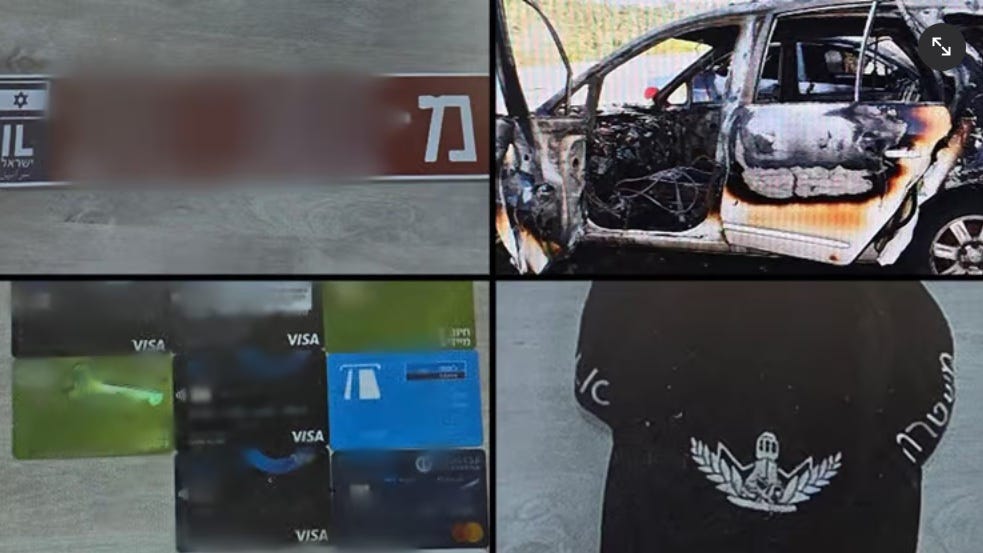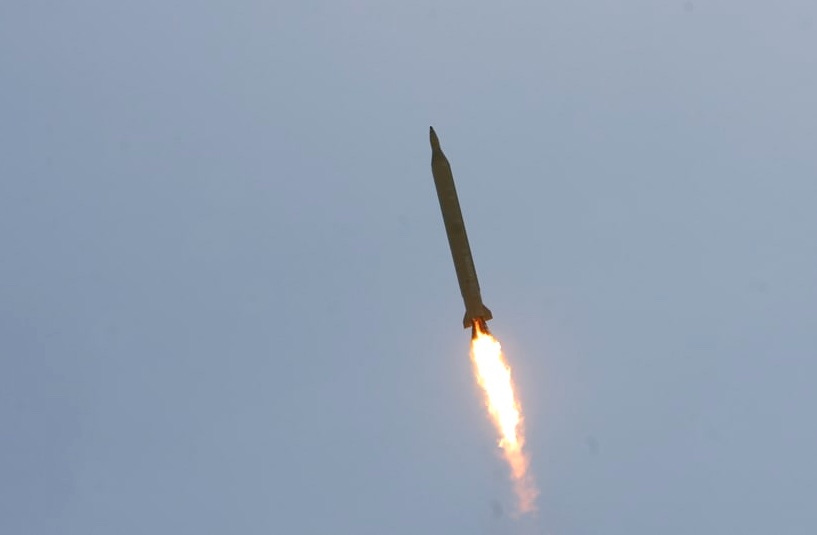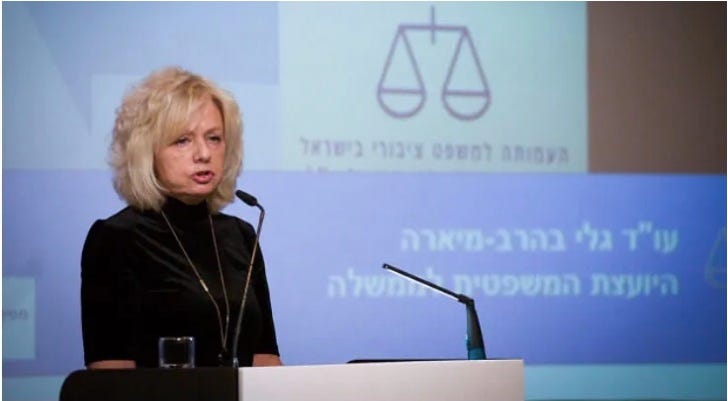WAR
Fire at missile production factory outside Tehran
On Saturday night Oct 26, 2024 100 Israeli planes, F-35, F-15, and F-16 jet fighters, along with refueling planes, flew 1600 kilometers (about 1,000 miles) each way, to strike in three waves over several hours at 20 targets in Iran.
The attack was planned to be proportional to Iran’s attack in early October. Then, Iran claimed they’d only aimed at military targets.
According to The Wall Street Journal, Israel sent advance warnings to Iran through Arab and European intermediaries. The message outlined Israel’s planned targets and cautioned that any Iranian retaliation would prompt even more forceful Israeli responses. Following the strike, Iran’s Tasnim News Agency indicated that there would be a “proportionate response” to the Israeli actions.
Israel Air Force planes refueled in the air
At the start of the attack the lead planes in the first wave took out all four of Iran’s Russian-made S-300 anti-aircraft/missile batteries, some in Syria and Iraq, rendering Iran sightless and essentially defenseless against the Israeli attack.
Iranian Russian made S-300 anti-aircraft missile battery
According to Gen (res.) Israel Lev, former IDF operations officer, the attack was ‘historic’ and ‘perfectly executed. In the attack the IDF destroyed rocket launch bases, at least 12 (some reports say 20) planetary mixers used to make solid fuel used in long-range ballistic missiles, rocket production factories, rocket and drone storehouses, and fuel depots, leaving Iran’s ballistic missile supplies severely depleted, and the Iranian ability to produce more rockets nearly eliminated entirely.
The IDF announced it had planned the attack on the factories for 02:00 AM when the factories would be empty of workers, thus not giving Iran an excuse for a retaliation because civilians were killed or injured.
The planetary mixers produced solid-state fuel for Iran’s long-range Khayvar and Qassem ballistic missiles, the same that hit Israel on October 2, 2024, when over 200 Iranian rockets rained down on Israel.
The Saudi Elaph news site reported that it would take two years to repair the planetary mixer factory, which was completely destroyed. The Axios news site said that Iran can’t produce the mixers on its own and must acquire them from China, which could take more than a year.
Observers say that the destruction of the factories would also limit Tehran’s ability to supply missiles to the Houthis in Yemen and Hezbollah in Lebanon, both Iranian proxies.
Nir Dvori, military correspondent for Channel 12TV said on Sunday night that it would take Iran two to three years to rebuild their rocket production. He also said that Iran had to be very careful how they used the rockets they still had since replacing them would take time.
According to veteran military correspondent Ron Ben Yishai writing in Ynet, “Israel proved tonight that it knows how to combine strategy, diplomacy, intelligence, technology and the ability to carry out complicated air operations.”
Israel Air Force Jet Fighter preparing for flight
Reportedly, Israel had coordinated the attack with the USA since the Biden administration insisted Israel not hit nuclear or oil facilities. It was also reported that Israel had to delay the attack by a week because Israel’s top-secret plans for the strike had been leaked by the Pentagon. ( Some reports state that the FBI traced the source of the leak to an official at the Secretary of Defense’s office earlier in the week. Pundits wonder if the leak was made by a person who disagreed with Israeli plans, or was an intentional leak by Secretary of Defense Lloyd Austin)
According to Ynet’s Ron Ben Yishai, “This does not appear to be the work of a mole in the Pentagon or the American intelligence community, but a deliberate leak by the administration. The assessment is growing that the goal is to prove that the administration directs Israel's steps.”
Austin had been ignored in the past when he told Israel not to invade Lebanon, kill Hezbollah leader Nasrallah, and earlier not to invade the Rafah area of Gaza, where Hamas leader Yahaya Sinwar was ultimately discovered and killed.
US Sec. of State Anthony Blinking (L) with PM Netanyahu
US Sec. of State Anthony Blinken had visited Israel earlier in the week ostensibly to try to bring Hamas and Israel to the negotiating table and to reach an agreement to free the 101 hostages still held somewhere in Gaza by Hamas.
However, analysts speculate that the real reason was for Blinken to make certain that Israel agreed to only strike military targets and avoid hitting nuclear and oil facilities that could lead to a larger Middle East conflict, raise the price of oil on the world market, and most of all negatively affect the chances of Democratic Presidential candidate Kamala Harris in the Nov 5th election.
Ynet’s well-respected political correspondent Nachum Barnea wrote during Blinken’s visit that, “Anthony Blinken is the administration closest adviser to President Biden.…The Biden administration wants to reduce the attack in Iran to symbolic dimensions or postpone it until after the American elections.”
However, Barnea pointed out that PM Netanyahu was fixated on attacking Iran. Barnea pointed out that a Hezbollah missile landed near Netanyahu’s home in Caesarea causing a bulletproofed window to crack. But Barnea said this was not the final impetus to Netanyahu’s push to attack.
Barnea also wrote that, “The timing of the Israeli attack on Iran was a central theme of the visit…”
Barnea pointed out that Blinken’s visit was political: a widespread Israeli attack and Iran's expected retaliatory action after it could harm Harris's chances in the swing states. When according to all the polls the elections are close, every act of war has an effect on the economy, on the agenda, at the ballot box.
Barnea wrote that the administration offers Israel protection and armaments in return for cooperation. The dilemma is difficult: among other things, it could upset Trump, the candidate Netanyahu chose to bet on his victory in the elections.
“You have achieved all your military goals in Gaza,” Blinken told Netanyahu. “Hamas has lost its military power; Sinwar was killed; Most of the organization's leadership was eliminated. Only cooperation between Saudi Arabia and Israel will fill the vacuum created and prevent a renewed rise of Hamas,” wrote Barnea.
According to Ron Ben Yishai, Israel not only attacked the top-secret Iranian Parchin area, where factories were located that also contained the planetary mixers used to make the ballistic rocket’s solid fuel, but also factories that produced long-range drones used to attack Israel.
Ben Yishai also pointed out that in the Parchin factory complex, “Tehran previously conducted experiments designed to allow it to produce nuclear weapons and finally produce a nuclear explosive device.”
According to media reports, while the IDF planes purposefully avoided directly attacking Tehran and other large cities the attacks could be seen from the city. These attacks, say pundits, humiliated Tehran and lowered the status of the Ayatollah regime, which, says Ben Yishai, “is not popular in any case." The attacks, according to Ben Yishai, were “not only intended to signal and threaten the Iranian Ayatollah regime, but to actually weaken it.”
Ben Yishai thought that if the ethnic minorities along the Iran-Afghanistan border and in the Khuzestan region, and the Kurds in the north who are fighting the Iranian regime see the Ayatollah’s as weak, “it may well create a chain reaction, especially if the damage to its prestige is repeated.”
Israeli politicians have pointed out that these strikes were a precursor to Israel’s eventual and inevitable strike against Iran’s nuclear capabilities.
Billboard in Tehran calling for Israel’s destruction
Iran has consistently pledged to destroy Israel, say politicians, and without eliminating Iran’s nuclear capabilities, Israel will never be able to live in peace, or survive should Iran become a nuclear power.
While some pundits speculate that Iran will not respond to Israel’s humiliating attack, given that Iran is now essentially defenseless against Israeli air attacks, and can no longer produce rockets to replace those fired on Israel. These pundits believe Iran will refrain from yet another counter-attack in what has become a war of attrition.
However, other news outlets quote Iranian politicians and Iranian media reports that Israel had made a mistake attacking Iran and that now Iran has no choice but to respond.
According to the Jerusalem Post, Iran’s Supreme Leader Sayyid Ali Khamenei threatened Israel in a post on X, written first in English and then repeated in Hebrew.
“Zionists are making a miscalculation with respect to Iran,” Khamenei wrote. Shortly thereafter, X removed Khamenei’s account.
The Jerusalem Post also reported that Israel expects that Iran would launch a counterattack in response to the successful strike against Iranian military targets including missile production facilities, according to an Israeli security source.
IDF Army Spokesman Admiral (res.) Daniel Hagari issued a warning to Iran not to strike Israel or it would pay a ‘heavy price.’ And Israel’s IDF Chief of Staff Herzi HaLevi said on Sunday that Israel had used “only some of our abilities to hit Iranian strategic systems in the recent attack.”
Israeli pundits doubt that Iran will defer to reason and not attack. Again, Israel is on tender-hooks waiting to see what Iran will do. Other observers speculate that the attack could well take place before the Nov 5 election in the USA fearing that a Trump victory would be disadvantageous to Iran.
However, more than one analyst sees this attack on Iran as a turning point in the war. And say that since Iran has lost its leadership in Beirut and Gaza, and now protection from Israeli jets, Iran’s popular support may soon erode.
Some analysts say that now, vulnerable from attack by Israel, Iran may well be facing what is the beginning of the end of their regime. Should they retaliate Israel could well destroy their nuclear facilities and even their oil refineries, bringing Iran's aggressive military tactics to a halt and grinding the economy into dust.
But, no matter what, most analysts agree that Israel will, sooner or later, with Netanyahu or someone else, with Trump or Harris, have to eliminate Iran’s nuclear.
So far, the toll from Israel’s fighting in Gaza and in the north has claimed the lives of 362 soldiers. Last week 23 Israeli soldiers were killed, mostly in south Lebanon.
On Sunday night Channel 12TV screened video footage of the funerals held for many of the soldiers. Wives, mothers and fathers, sisters and brothers were seen weeping over the final words spoken at the gravesite. One observer said this was a sad commentary to offset Israel’s military accomplishments in Iran.
Also, the Times of Israel reported that military spending has soared. Before Hamas invaded southern Israel on Oct 7th, the government was spending $1.8 billion a month. That sum rose to around $4.7 billion a month by the end of 2023. Overall, the government has spent $27.5 billion on the military in 2023.
According to the Times of Israel, even amid the fighting, tech companies raised some $2.5 billion in capital during the third quarter, according to Zvi Eckstein, head of the Aaron Institute for Economic Policy at Reichman University.
Israel started the war “in the best economic condition” regarding government debt, which stood at a relatively modest 60% of GDP, Eckstein said. “We financed the war mainly with debt,” which has now risen to 62% but is still contained compared with France at 111% and in line with Germany at 63.5%.
The institute foresees debt reaching 80% of GDP, assuming the fighting does not markedly intensify and some sort of ceasefire or conclusion can be reached by the end of next year. Even then, higher defense spending is likely, especially if Israel maintains a military presence in Gaza after the war.
Iron Beam Laser Interception System
And on Monday, the Israeli government has signed an agreement with Rafael Advanced Defense Systems and Elbit Systems valued at around NIS two billion ($534 million) to significantly expand its acquisition of Iron Beam Laser interception systems So far the Iron Beam has performed extremely well. But funds are needed to produce more of the defensive weapons if the skies above Israel are to be safe. The new system is expected to become operational in 2025.
NORTH
IDF troops in south Lebanese village
According to the Times of Israel, five IDF reservists have been killed and 14 wounded in battles with Hezbollah in south Lebanon. This brings the toll of the ground offensive against Hezbollah in Lebanon to 34.
Channel 12TV reported on Sunday night that last week alone 23 Israeli soldiers were killed in the fighting in S. Lebanon.
Israel has been hit on a daily basis by Hezbollah rockets even though the IDF claims to have destroyed 70% of their supplies. Sirens have sounded across the center of the country sending residents scurrying to safe rooms and bomb shelters.
On Sunday, over 150 rockets were fired at Israel from Lebanon. Ynetnews, said one woman was seriously injured following a massive-rocket Hezbollah salvo that hit the north.
Car burning in Israeli Arab town of Tamra
A 57-year-old woman was seriously injured when a rocket hit Tamra, an Arab town in Israel’s north.
According to the Times of Israel, on Friday, two people were killed and seven injured after rockets fired by Hezbollah struck the northern Arab town of Majd al-Krum, as several barrages from Lebanon targeted the north.
Arjwan Manaa, 19, and Hassan Suad, 21, succumbed to critical wounds sustained when a rocket hit near a mini-market in the town. Manaa was working as a cashier and Suad was a customer who was there buying produce.
The IDF also said it downed a drone that crossed into the Western Galilee in the early evening, and another drone that crossed into the Golan Heights from Syria shortly before noon.
On Tuesday a Houthi fired rocket fell in an open area of Ashkelon, while a drone fired from Lebanon fell near the train station in Naharyia. No casualties were reported.
IDF troops in Hezbollah tunnel in Lebanon along Israel’s border
The attacks on the Israel’s north came as the IDF pressed on in its ground operation against Hezbollah in southern Lebanon. The IDF said Friday that it had carried out airstrikes on Hezbollah’s intelligence division and air defense unit in Beirut; bombed a border crossing between Lebanon and Syria which the army says Hezbollah used to smuggle Iranian arms; and demolished two tunnels in southern Lebanon, including one slated for a planned invasion of Israel.
The IDF also issued evacuation orders for three buildings in two neighborhoods in the southern suburb of Beirut, a Hezbollah stronghold known as Dahiyeh, ahead of the air strikes. Lebanese state media reported an Israeli raid in Dahiyeh’s Burj al-Barajneh and Hadath neighborhoods shortly after the warnings were published. The US had asked Israel to stop bombing Beirut.
Also, after finding massive stores of Iranian-made and Russian-made weapons and ammunition in every home in south Lebanon, the IDF began expanding its operations into the second line of towns and villages some 5 kilometers (3 miles) from the border with Israel.
IDF soldiers find weapons in Hezbollah tunnel in south Lebanon
According to Ynetnews, Israel is aiming to rout Hezbollah's Radwan force that are spread out in an area containing up to 20 Shiite villages, stretched along the 130-kilometer (81-mile) frontier. with Israel.
Israel’s air force also continued to bomb Hezbollah rocket launcher sites and command posts.
Still, according to observers, the battle is far from over. Hezbollah appears to be run by a group of field commanders that can operate without a central command issuing orders. And Hezbollah still has that 30% of rockets left in the north of the country that are used to fire constantly at Israel.
Weapons in Hezbollah tunnel in south Lebanon
Hezbollah drone strikes, as well as those sent by Iranian proxies in Iraq, have also plagued Israel.
IDF troops have been fighting in south Lebanon, driving out the Hezbollah crack Radwan forces from their positions. The IDF announced last week that it had discovered a 2km long tunnel beneath a village in South Lebanon that had taken over 15-years to build.
The tunnel was, reportedly, more sophisticated than anything found in Gaza with a ceiling that rose over six-feet in some places and was 140 feet below ground in others. The tunnel held storerooms for weapons and explosives, kitchens, bathrooms, bedrooms and command centers. Many exits to the tunnel were found.
The IDF said these were to be used when the Radwan forces flowed out of the tunnels and attacked the towns of Northern Israel in a similar way that Hamas had attacked the Jewish settlements along the Israel border with Gaza.
Reporters touring the area said that weapons and explosive devices were found in nearly every home in the village. The IDF claims that the tunnel and those stockpiles in the homes above ground were to be grabbed by Radwan fighters as they attacked Israel.
The IDF reportedly used over 400 tons of explosives to destroy the tunnel and all of its tributaries. Observers said the explosion felt like an earthquake and registered as such on the Richter scale.
Meanwhile, according to Ynetnews, on Sunday The Israeli Air Force struck and eliminated Ahmed Jafar Maatouk, the commander of Hezbollah's Bint Jbeil area,. The operation with the direction of IDF intelligence took place on Friday.
A day later, directed by IDF intelligence, the IAF struck and eliminated his successor. Additionally, Hezbollah's head of artillery in the Bint Jbeil area was eliminated in the strike. These terrorists directed and carried out numerous terror attacks from the Bint Jbeil area including launching anti-tank missiles toward Israeli civilians and IDF troops operating in southern Lebanon, according to the IDF.
Also, the Jerusalem Post reported on Monday that Hezbollah has reportedly begun to crack as the Iran-backed terror group has experienced a wave of desertions, sources told the Arabic independent online newspaper Elaph in a report published Sunday.
Reportedly, some Hezbollah terrorists are not showing up at their assigned locations in south Lebanon, and others are fleeing to Syria with their families. Elaph reported that Hezbollah has begun sending reinforcements to south Lebanon to confront the Israelis.
Israel has suffered Hezbollah rocket and drone attacks since the war with Hamas began on Oct 7. 60,000 Israeli residents of the north fled their homes. The recent IDF incursion into Lebanon was meant to prevent the Hezbollah Radwan forces from invading Israel’s north as Hamas did along the Gaza border.
GAZA
IDF troops near tank in Gaza
The war in Gaza continues. According to the Times of Israel, the IDF said that troops are carrying out targeted raids in central Gaza and have killed a number of Hamas terrorists.
The army also said that IDF troops are still fighting Hamas terrorists in the Rafah and Jabaliya areas.
“The forces continue their efforts to evacuate civilians to safe areas, despite Hamas’ efforts to prevent civilians from doing so,” the IDF said in a statement.
Earlier other soldiers in the tank corp were killed by an anti-tank rocket while standing near their tank.
Sgt. Elishai Young
Another soldier killed in Gaza was Sgt. Elishai Young, 19, from Dimona. Young was a member of the Hebrew Israelite Community founded in 1966 by an Afro-American named Ben Carter, a Chicago area steelworker who believed the original Hebrews were black. Carter led a group of 39 followers to Israel in 1969. Today the community numbers close to 3,000.
In 2013, then-Minister of Interior Gideon Sa’ar decided that those who completed more than 18 months of military service would receive citizenship, along with their immediate family. However Sgt. Young fell before completing the 18 months. An appeal was made by the family to grant him citizenship anyway.
According to the Jerusalem Post, the community participates fully in local life and campaigns on behalf of Israel. Children attend local state schools; most eligible youngsters serve in the IDF. However, many still do not have Israeli citizenship since the Israeli religious authorities do not consider them Jewish according to Halacha.
Most members of the community arrive on tourist visas and never leave. Recently, some members of the community were deported for overstaying their tourist visas. However, there is a move afoot to finally recognize the community and grant the members permanent resident status.
Meanwhile, the IDF claims that Hamas, as a fighting force, has been reduced to a few thousand men fighting a using guerrilla tactics. Still, say observers, Israel might be winning the war in Gaza but there are still battles to be fought before the war is over.
Birns (left) Al-Thani,(center) Barnea (right)
An Israeli negotiating team led by Mossad head David Barnea has begun meetings in Doha, Qatar aimed at reaching a ceasefire and hostage exchange. Barnea is meeting with CIA director Birns and Qatar’s Prime Minister Al Thani.
Ynet reported on progress for a ceasefire. Hamas officials revealed on the Saudi network A-Sharq that the terrorist organization will offer the mediators participating in the summit in Doha "a comprehensive deal to end the war immediately, which includes Israel's withdrawal from the Gaza Strip, combined with a prisoner exchange, including all the Israeli hostages."
A senior Hamas official said: "Today the Egyptian, Qatari and American mediators are meeting with Israeli officials. We will listen to their proposals, but for our part we prefer a comprehensive deal that will take place in one fell swoop." According to him, such a deal "will end the war once and for all. Without the end of the war, there will be no agreement."
According to Ynetnews, “It’s been like this since January,” said an official close to the talks. “We’re negotiating with ourselves, or at best with intermediaries. At no point has there been a real negotiation with Hamas. They’ve set a demand and haven’t moved an inch from it: a complete end to the fighting and full Israeli withdrawal from Gaza, and that’s not happening.”
One commentator on Ynetnews said that Israel was talking to itself at Doha and that any cease-fire requires Hezbollah and Iran to pressure Hamas towards negotiations.
Also, Israeli analysts say no real breakthrough will be made until after the November 5th US presidential elections.
However, Ynetnews reported on Tuesday that US Special Envoy Amos Hochstein was due in the region before the US elections to finalize details on an end to the war in Lebanon.
Reportedly, Hezbollah has agreed to drop its pledge to continue fighting as long as the war continues in Gaza. And, if the talks advance, the IDF will begin to withdraw most of its troops and redeploy forces in South Lebanon and leave areas where their mission to remove the threat from Radwan forces, has been completed, and likely remain only where there is tactical significance.
The Hezbollah forces are expected to withdraw beyond the Litani river, and the Lebanese government is then expected to send thousands of Lebanese troops to patrol southern Lebanon.
Israeli officials said a cease-fire agreement would begin with a 60-day acclimation period during which Hezbollah and the IDF withhold their fire and the Lebanese army will deploy to the south, while a new mechanism to supervise the region, perhaps overseen by Russia according to some reports, will be considered but there will be no new resolution passed in the UN Security Council. The parties are expected to abide by the previous UN resolution, 1701, that kept Hezbollah out of the areas near the border.
UNRWA sacks of flour in Gaza
On Monday, the Knesset, Israel’s parliament, voted 92-10, with support from the opposition parties National Unity, Yisrael Beytenu, and Yesh Atid, to outlaw UNRWA (UN Relief and Works Agency). The bills passed despite fears that the international community could seek retribution by taking steps against it at the United Nations.
The two bills were submitted to the plenum by Knesset Foreign Affairs and Defense Committee chairman MK Yuli Edelstein. Edelstein cited the fact that UNRWA employees had participated in, and even served as commanders, in the October 7 Hamas massacre. Edelstein also mentioned incitement in UNRWA school curriculums. Israeli agencies will take over UNRWA’s responsibilities.
The US has criticized the legislation. Other countries have said that the legislation would leave 2 million Palestinians in Gaza, the West Bank, and Jerusalem, without an address to turn to for help, education, and medical facilities.
WEST BANK
IDF raid in the West Bank
According to the Times of Israel, the Israeli security forces again raided the West Bank town of Tulkarem, called a ‘hotbed of terrorism,’ eliminating the Hamas operative Islam Odeh after a fire-fight.
Since Oct 7, Israel has carried out 70 air strikes against targets in the West Bank, arrested arrested 5250 wanted terrorists in the West Bank, including 2050 affiliated with Hama. 41 Israeli civilians and security personnel have been killed in the West Bank since Oct 7.
The war has also hit the West Bank economy hard. Tens of thousands of Palestinian workers lost their jobs after October 7. The World Bank says the West Bank economy contracted by 25% in the first quarter of 2024.
HOSTAGES
Bereaved families yelling at PM Netanyahu during memorial ceremony
The sand is nearly out of the sand dial, said one observer, commenting on the fate of the hostages still held in Gaza after 388 days. 252 were kidnapped during the Hamas pogrom of Oct 7, 2023. 101 are still in Gaza but only a few score are expected to still be alive. “Their time is running out,” say the families of the hostages.
According to Nachum Barnea, writing in Ynet, “…The proposed deal includes the return of all the abductees, the withdrawal of all IDF forces from Gaza, the handing over of internal security in Gaza to the PA's police force and the placement of an international force along the border with Israel and Egypt. Israel will agree to the renewal of negotiations with Abu Mazen and will accept normalization with Saudi Arabia.
“The question of whether there is a force in Gaza today that can return all the abductees is open. The question of the power of the mediating countries is also open. Nothing is close to the end.
“The price demanded from Israel is heavy, even in objective terms, even when compared to the commitments that Netanyahu gave to his base throughout the year. But the alternative, losing all the abductees, continuing the IDF's bloodshed in a pointless war, deepening the crisis with the Democrats and missing the chance for a regional alliance, does not bode well.”
Hostages’ families say that PM Netanyahu had a chance to end the war months ago in exchange for Hamas prisoners but has up until now avoided that avenue. Meanwhile, they say, soldiers are dying in the fighting, and hostages are dying in the tunnels or private homes where they are held.
To commemorate the Oct 7 massacre, the Israel government held two other controversial Day of Mourning, these on the Hebrew date of the pogrom. One ceremony was a memorial to the soldiers lost in battle, a separate memorial was held for the civilians and those who were killed by Hamas on Oct 7 or those who died while hostages in Gaza.
However, some families of hostages and even government ministers questioned the necessity of a second National Day of Mourning after a similar day had been held on October 7.
The decision to move forward with the ceremony was pertinent only to the one-year commemoration, as the Knesset is preparing legislation for permanent commemoration that will apply from 2025 onwards.
According to the Jerusalem Post, bereaved families jeered and interrupted Prime Minister Benjamin Netanyahu's speech at a ceremony for the civilian casualties of October 7 and the ensuing war, shouting over him as he began to speak.
One of those shouting at the prime minister wore a shirt that read “we are not all together. I am an orphan.”
According to Kan broadcaster, another man protesting the prime minister was Yaakov Gudo, whose son Tom was killed in Kissufim on October 7. Gudo told Kan he was not sure if he should attend the ceremony but decided to attend to make sure his voice was heard.
Speaking at the military ceremony, Defense Minister Yoav Galant said, “Not every goal can be achieved only by military action" and that Israel will need to agree to ‘painful concessions’ in order to bring the hostages home.”
President Herzog said in his address at the military ceremony that the "critical, supreme task still lies ahead of us—to urgently bring back the hostages from the hands of the murderers."
"The elimination of the arch-terrorist Sinwar and other enemies, and the impressive fighting by the IDF and security forces, have created an opportunity that we must not miss," Herzog said.
"We must act with all our might—with all our might, and in every way—with determination, creativity, and boldness to secure the return home of the hostages. Many of the fallen saw this as their supreme mission; so many fought and continue to fight with the images of the hostages in their vests; so many still do so—at home and on the front lines, on land, in the air, and at sea. The blood of our brothers cries out to us. Their rescue is a supreme and binding duty, without which we cannot be whole as a people and as a state," the president said.
Egypt’s Al-Sisi (L) US President Biden Qatar’s Al-Thani
Meanwhile on Sunday, according to Reuters, Egyptian President Abdel Fattah al-Sisi said Egypt had proposed a two-day cease-fire in Gaza to exchange four Israeli hostages with some Palestinian prisoners followed by 10 days of talks.
Later, terms were proposed to release eight hostages and a cease-fire of 28 days. The talks are continuing.
And according to the Times of Israel, as talks aimed at ending the war and freeing hostages restarted in Doha, a top Hamas official indicated that the Gazan terror group was open to a deal with Israel. And was open to the Egyptian proposal. And wanted a comprehensive deal rather than a piecemeal one.
Husam Badran, a senior member of Hamas’s Qatar-based political bureau, said in a statement carried by the Pro-Hamas Shehab news agency that an agreement is possible.
“Our demands are clear and known, and a deal can be reached, provided that Netanyahu remains committed to what was already agreed upon,” Badran said.
Also, in an interview on Kan Reshet Bet radio, the issue of humanitarian aid to Gaza was addressed by Motti Kahana, an Israeli living in the USA, who owns GBC Logistics. Kahana said he was involved in the mission to rescue the last Jew from Afghanistan and the last Jew from Yemen.
Kahana pointed out that the US Congress had voted to provide $90 Billion in humanitarian aid to Gaza. He suggested taking $200 million of that aid and instituting a program similar to that his company ran in Afghanistan.
He said that now aid shipments to Gaza were being hijacked by criminal gangs. Sometimes they stopped a truck and took half of the goods and let the driver continue. Then they sold the stolen goods on the black market.
The trucks not hijacked by the criminal gangs were hijacked by Hamas, said Kahana, who took the entire shipment.
Kahana’s plan was to cordon off a neighborhood but allow free access to residents. Only they’d have to go through a check point where their identity would be confirmed as residents of that neighborhood, and to deny entry to those with nefarious intentions. Or arrest wanted criminals who showed up at the checkpoints.
Kahana said he had support for the plan, and the money to implement it, but that the problem was “politics.” He wouldn’t name names.
Kahana said he’d brought a “top US general” to present the successful Afghan neighborhood plan a year ago. But was ignored.
Kahana also said he’d warned the US government not to spend $350 million dollars building a floating pier off the coast of Gaza. He said it was a waste of money. And was proven right when stormy weather tore the pier to pieces and it was finally removed.
And former CEO of Soda Stream, Daniel Birnbaum, has promised a $100,000 to anyone who returned living hostages to Israel. The offer ended last week and if anyone took up the offer the exchange was done very secretly.
TERRORISM
Truck that crashed into tourist bus
According to the Times of Israel, one man was killed and 37 were wounded, six seriously, on Sunday, when a truck rammed into a tourist bus outside Tel Aviv, near the Glilot army base. The driver, an 40-year-old Arab, father of three with no criminal record, from the West Bank was shot and killed. The tourist bus was filled with retirees who had just pulled up to a bus stop when the truck came speeding at them.
Glilot, where a number of Israel’s security services and bases training soldiers in intelligence units, has been the site of a number of drone and missile attacks.
According to eyewitness Avraham Zohar a member of the group of retirees on the bus, "As soon as we stopped and started getting off [the bus], we heard a boom. I turned around and saw people being thrown about.”
"My wife was thrown and then dropped to the ground because she thought it was a bombing attack. I picked her up and started moving forward. I went back because people were piling and we began pulling them out one by one. It was a graphic sight, but we had no choice. The truck driver was trapped inside and we told the police and then I heard two or three gunshots and realized they had neutralized the driver,” he said.
Zohar said the police informed them that it was a terror attack. "We didn't realize it was a terror attack. The police came and said it probably was. An officer asked where the truck driver was. I told him he was stuck inside. The officer climbed up and started talking to him, and the driver began moving and then I heard gunshots."
The driver, Rami Nasrallah from the West Bank Arab town of Qalansawe, was shot and killed. His relatives claimed the incident wasn't a terror attack. "That's a lie. Rami suffers from illnesses and lost control of the truck due to a medical issue," a relative said. Police are investigating.
And two groups of Iranian sponsored spies were arrested in Israel within the last two weeks. One group of seven, including two minors, were Jewish immigrants from Azerbaijan living near Haifa. Azerbaijan has a significant Moslem population.
Reportedly, one of the seven was recruited by Iranian agents while visiting Azerbaijan. He later recruited others from his family. One, a soldier, reportedly took photographs from inside army bases.
According to the charge sheet, the group was active for over two years and had supplied Iran with over 600 photographs of sites requested by their Iranian handler. The photographs were then sent through the internet on a special secure channel.
The group was arrested just over a month ago and are expected to be charged with helping an enemy in wartime.
According to a statement released on Monday, the seven Israeli citizens were arrested for gathering sensitive information on Israel Defense Forces (IDF) bases and energy infrastructure. And photographing Israel’s Iron Dome installations.
According to Haaretz, the suspects allegedly received hundreds of thousands of dollars in cash transfers from Russian intermediaries, as well as in cryptocurrencies.
Three of the suspects were apprehended while allegedly photographing sensitive sites in southern Israel, and the police discovered dozens of documents in their possession.
According to the Guardian newspaper, “Investigations revealed that over a period exceeding two years, the suspects executed multiple security missions under the direction of two Iranian intelligence agents known as ‘Alkhan’ and ‘Orkhan’,” said a statement.
“The network members were aware that the intelligence they provided compromised national security and could potentially aid enemy missile attacks. The network conducted extensive reconnaissance missions on IDF bases nationwide, focusing on air force and navy installations, ports, Iron Dome system locations, and energy infrastructure such as the Hadera power plant.
“These activities were financially compensated with payments totaling hundreds of thousands of dollars, often facilitated through cryptocurrencies,” the statement added, suggesting those arrested had been motivated by “greed”.
“The operation involved photographing and documenting strategic sites, with the collected data being transferred to Iranian agents. Network members utilized advanced equipment procured specifically for these tasks under Iranian guidance.”
“There was a system,” said one of the investigating police officers, Yaron Binyamin. “They collected dozens of documents that noted the exact site to photograph, what information to gather and how much money they would be paid. A real price list.
“The method was first to receive the mission to film a base, then travel there, unload the equipment and find a vantage point, then deliver the photos via encrypted software to their Iranian handlers.”
According to reports in the Israeli press, the suspects are accused of photographing and collecting information about Israeli bases and facilities, including the defense headquarters in Tel Aviv, known as the Kirya, and the Nevatim and Ramat David airbases.
The Nevatim base was targeted by Iran’s two missile attacks, and Ramat David has been targeted by Hezbollah.
The second group, aged 19-23, that were recently arrested were Israeli Arabs from the E. Jerusalem neighborhood of Beit Safafa. Again, one man, a 23-year-old, was recruited and he brought in the other six.
According to the Times of Israel, these arrests mark the fifth Iranian spy case revealed since September, but the first to profess a desire to hurt Israel as the main motivation
None of the suspects from the Beit Safafa neighborhood had previous criminal or security-related records.
Six of the suspects are Israeli citizens, and the other is a permanent resident. The leader of the ring, a 23-year-old named Rami Alian, was recruited by an Iranian agent, and Alian then recruited the other six members, authorities said.
The suspects carried out various missions for their Iranian contacts, including posting graffiti demanding the release of Israeli hostages, vandalizing sites in Jerusalem, and photographing various locations, the authorities said.
After a while, “the missions turned into more serious sabotage efforts, like setting a vehicle on fire,” which the group did in the Jerusalem’s Ein Kerem neighborhood, in exchange for 2,000 NIS ($529) Some were also tasked with purchasing weapons,” a security official said.
At one point Alian was asked to hurl a hand grenade at an Israeli security serviceman, allegedly locating a soldier in Jerusalem and receiving 15,000 NIS ($3,969) to purchase the grenade. In the end he did not carry out the mission.
After this incident, Alian was told to photograph a research center, which he allegedly did, in exchange for 5,000 NIS ($1,322).
Israeli scientist’s car destroyed by Israeli spies hired by Iran
Alian was ultimately given a photo and address of the nuclear scientist whom the Islamic Republic wanted him to assassinate, and was told he would be paid NIS 200,000 ($53,000) if he succeeded, authorities said.
Police said Alian told investigators he was aware he was working for Iranians and wanted to harm national security, citing the war in Gaza. “I feel proud that an Iranian turned to me,” he allegedly said.
Other spies recently arrested were a 30-year-old Russian immigrant and his 18-year-old Israeli girlfriend who were hired to carry out sabotage and vandalism for Iran.
On Oct 16, Israeli police announced the arrest of a man from central Israel who had acquired a gun with the intent of killing an Israeli scientist.
RED SEA
Iranian supplied Houthi Ghadar missile
According to the Wall Street Journal, Russia has reportedly supplied the Iranian-sponsored Houthi Rebels with technology to track ships that sail through the Red Sea.
Russia earlier this year provided satellite data to help Yemen’s Houthi rebels strike ships in the Red Sea, the Wall Street Journal reported Thursday.
The Wall Street Journal quoted “a person familiar with the matter” and two anonymous European defense officials, that said that the data was transmitted by members of Iran’s Islamic Revolutionary Guard Corps stationed in Yemen and used to target ships with missiles and drones.
The Iran-backed Houthis, who control vast swaths of Yemen, started targeting commercial shipping in the Red Sea in what they say is solidarity with Palestinians in the Gaza war, sparked by Hamas’s October 7, 2023, terror onslaught against Israel.
The attacks have led to a dramatic drop in traffic through the key shipping lane.
In response, the United States and Britain deployed a naval coalition to the region and have bombed Houthi targets in Yemen.
In more than 100 Houthi attacks over nearly a year, four sailors have been killed and two ships have sunk, while one vessel and its crew remain detained since being hijacked last November.
According to observers, Russian leader Vladimir Putin has been keen to push back against the political and economic isolation imposed on his country by the West since his invasion of Ukraine in 2022.
The Yemen-based Houthi rebels claimed to have attacked an American oil tanker 'Olympic Spirit' in the Red Sea on October 10.
ANTISEMITISM
In Portland, Maine, the mayor apologized for backing an Israel divestment measure. And pro-Palestinian protesters were arrested last week after occupying a building at the University of Minnesota.
Anti-Israel protest
And according to the Times of Israel, a number of protesters chanted anti-Israel and pro-Palestinian slogans outside a Jewish community center in London that was hosting a conference organized by the Haaretz newspaper.
“We will occupy these streets until Gaza, Lebanon and Yemen are free, and Zionism no longer exists,” a man said through a megaphone outside the JW3 center in northwest London. The protesters repeated each of his sentences. JW3 is one of the main centers of Jewish cultural life in London.
Food Coop in Park Slope, Brooklyn, NYC
And in New York’s Park Slope neighborhood of Brooklyn, a New York co-op health food store filed a complaint over antisemitism.
Jewish and Israeli members of Brooklyn’s Park Slope Food Coop allege that anti-Jewish, anti-Israel harassment was commonplace and say no action has been taken against a member who performed Nazi salute.
The complaint was filed by the anti-BDS coalition Coop4Unity, listing multiple allegations of antisemitic hate speech and harassment at the co-op, a member-owned and operated health food store.
“The complaint itself is essentially that there’s been a number of incidents that we believe have led to a toxic workplace environment,” Ramon Maislen, who filed the complaint, told the Jewish Telegraphic Agency.
“It is disheartening that despite numerous calls for action, Coop leadership has failed to protect its Jewish and Israeli members from ongoing harassment,” Maislen said in a statement. “No one should feel unsafe or marginalized in a place that claims to serve all people equally.”
The statement says members of the Park Slope Food Coop Members for Palestine, which supports a boycott of Israeli goods, are responsible for much of the harassment.
Candace Owens
And in Australia, the entry visa of right-wing African American political commentator Candice Owens has been revoked. Owens has made multiple statements that have outraged Jews and Jewish groups.
Previously, Owens referred to Judaism as a “pedophile-centric religion that believes in demons...[and] child sacrifice.”
She has also said that the Holocaust was ‘propaganda.’
And she accused Sigmund Freud of pedophilia, and of using psychoanalysis to tell rape victims they were attracted to their fathers, “No, they were being raped when they were seven years old because that’s what you do when you worship the Kabbalah."
She also accused Israel of having killed John F Kennedy.
POLITICS
Attorney General Gali Baharav-Miara
Attorney General Gali Baharav-Miara told Police Chief Daniel Levy that he could not remove the police top legal adviser Elazar Kahana from his position as police ombudsman and move him to the head of the prosecution department, despite him not having been a candidate for that job.
According to the Times of Israel, Baharav-Miara told Levy the appointment was carried out “in a rushed process and against the officer’s will” and that Kahana was removed as legal adviser “without any reason at all to justify this.”
The Attorney General said such action was beyond Levy’s powers since the appointment or removal of a government legal adviser must be done with the Attorney General’s approval since they are subordinate to her office. “An act like this is unprecedented,” she wrote in a letter to Levy.
Levy said that the Attorney General was ‘de factor usurping” his authority. “I am not familiar with any legal obligation to consult with the attorney general before appointing a senior officer in the police force,” Levy said in a letter to the attorney general that was leaked to the press.
Levy, who had been indicted for throwing a stun grenade at anti-government protesters in March 2023, injuring a woman, had been appointed by Ben-Gvir against the police legal adviser Kahana’s objection.
Kahana has also opposed Ben Gvir’s decision to promote Police Superintendent Meir Suissa and appoint him as commander of the South Tel Aviv Police Station calling the move “illegal.” Legal adviser Kahana then also agreed with the Attorney General.
Baharav-Miara told the High Court of Justice last month that far-right minister Ben Gvir should not be allowed independent counsel to fight a lower court order freezing his decision.
According to Haaretz, the High Court rejected the Attorney General’s bid to stop Israel’s police chief from removing Police Legal Counsel Kahana.
Ben Gvir has been one of the proponents of the Judicial Reform that many analysts say was one of the causes of the war in Gaza.
Meanwhile, Prime Minister Netanyahu is scheduled to finally appear in court to testify in the three felony charges against him. The court case has dragged on for years and Netanyahu has claimed he has no time to go to court since he’s running a war. Before that his excuse was he was running the country during the COVID epidemic.
Some critics have charged that Netanyahu is dragging out the war in order to avoid court and stretch his term until 2026 when new elections are scheduled.
And Israel’s Knesset began the winter session with a number of bills, many that had little or nothing to do with the war. “It’s as if there is nothing going on in the north or south. Only narrow self-interests of various parties,” said one critic.
One of the controversial bills is the draft law of Haredi (ultra-Orthodox) yeshiva students. The ultra-Orthodox Shas party has used this bill as an excuse to boycott votes on other issues.
Shas has boycotted a vote on several bills in the Ministerial Committee on Legislation to to protest the government’s failure to advance a bill exempting yeshiva students from enlistment in the IDF.
According to the Times of Israel, Shas Labor Minister Yoav Ben Tzur told the Hebrew media, “We are abstaining from voting because of the government’s failure to pass laws that are important to Shas in particular and the ultra-Orthodox public in general.”
Ultra-Orthodox United Torah Judaism party chairman Yitzhak Goldknopf threatened to bolt the coalition earlier this month, a move that would cause the government to fall and bringing about new elections, stating that his ultra-Orthodox party would not be able to remain part of the government if a bill exempting Haredi yeshiva students from military service is not passed before the 2025 state budget comes up for approval.
However, Goldknopf later withdrew the threat.
The IDF has stated it would accept 3,000 yeshiva students in the draft out of the over 100,000 eligible. The IDF has said they are running short of manpower due to the war.
Utra-Orthodox Yeshiva Students Protesting the Draft
Yisrael Beitenu chairman Avigdor Leiberman told his party on Sunday that the “high price” that Israeli soldiers have been paying in the war against Hamas and Hezbollah is placing an increasing burden on those already serving while working to pass an “evasion law” to exempt ultra-Orthodox yeshiva students from military service.
“We demand to have one clear law: one nation, one draft,” he stated, noting the IDF’s ongoing shortage of troops.
“This is the worst government in the history of Israel,” he added.
Also, on Sunday, according to the Times of Israel, Finance Minister Bezalel Smotrich called for Israel to effectively annex the West Bank calling for the establishment of new settlements in Palestinian areas and deporting Arabs who want a Palestinian state.
Smotrich also called for Israeli sovereignty to be extended to the Gaza strip. He claimed that Israel’s war gains would dissipate without troops, and civilians, being posted in Gaza on a more permanent basis.
And Ynetnews reported that Smotrich said on Sunday that the "Palestinians are part of the axis of evil," urging the next U.S. administration, along with Western allies, to topple the mullah regime in Iran.
EDITORIAL
Israel has a lot to be proud of when it comes to the recent strike on Iran. This was one of the classic Israeli ‘look what they pulled off’ moves, similar to when they hit the Iraqi nuclear reactor, or stole five missile boats from Cherbourg France on Christmas eve 1969
In that instance, Israel had purchased the boats but France imposed an arms embargo and refused to deliver them.
To legally circumvent the embargo, Israel orchestrated the sale of the boats to a front, a Norwegian shipping company. Thus, work on the boats continued at the Cherbourg shipyard under the supervision of Israelis masquerading as Norwegian sailors. These same Israeli sailors then stole the ships and sailed them to Israel.
Up until then, since the 1950’s, France had been Israel’s primary source of arms. France imposed the embargo following an Israeli strike on aircraft at Beirut International airport in retaliation for a Palestinian terrorist attack.
Today, once again, France has imposed an arms embargo on Israel for ostensibly not allowing humanitarian aid into Gaza and for bombing Beirut.
France, once again, has shown it is an off-again, on-again friend of Israel’s.
French President Emmanuel Macron seems convinced the embargo will gain him favor with France’s growing Moslem population.
According to observers, the US is also worrying Israel. In 1979 US aid to Israel amounted to 22% of Israel’s GDP. Today the number has shrunk to 0.6 % according to Niall Ferguson writing in the Free Press.
While Ferguson scoffs at the US aid, Israel knows that the projectiles needed for the Iron Dome, the Arrow missiles, bullets for Israeli rifles and spare parts for Israeli fighter jets and tanks, all supplied by the US, are of vital importance to the war effort.
Those supplies are one of the reasons Israel refrained from bombing Iran’s nuclear reactors and oil refineries. The US had said not to, and while Israel has ignored a few of the US’s no-nos in the past, this was one that could not be ignored without incurring the wrath of President Biden, Secretary of State Blinken, and Secretary of Defense Austin.
Israel is already short of US supplied bunker-buster bombs. The same ones that Biden has stopped sending Israel, worried about civilian casualties in Gaza, and now Beirut.
Blinken even made a special trip to Israel last week to insure that Israel stayed away from these hard Iranian targets that could, should they be destroyed, inflame the region.
Back in 1973 one of the Israeli air force’s first targets were the SAMs (surface to air anti-aircraft missile batteries) guarding the Suez Canal and Egyptian positions in the Sinai. So hitting these Iranian Russian supplied S-300 batteries was just a repeat of previous strategies.
In the long run, Israel will have no choice but to use these open skies over Iran to destroy Iran’s nuclear capability. Iran has been quite adamant about meaning to destroy Israel.
An Iranian nuclear attack would do that job nicely. And as the world has seen in Gaza, Islamic Fundamentalists have little regard for the lives of Moslems if those deaths are seen as serving a higher purpose. That means that those Moslems who would be killed along with the Israelis would be martyrs to the cause, just as the Moslems living in Israel who are hit by Hezbollah rockets are martyrs to the cause.
However, Iran has not limited its vitriol to Israel. The USA is still public enemy number one in their eyes. Take out the USA and Israel falls like a rock. So it is in the USA’s interest to stop Iran’s striving for a nuclear weapon.
Will the world be better off with Kamala Harris steering the ship or Donald Trump? Which one would stand up to the Imams? Which would see Iran as an existential threat?
And once Iran is dealt with, either by Harris or Trump, then there’s the question of Russia, Iran’s ally. And China, an Iranian trading partner. And Turkey, another Iranian ally, and one that supports the terrorist Moslem Brotherhood.
So, say the analysts, taking down Iran is only one step in the process. As many pundits say, the solution may be a pan-Arab coalition of moderate Arab states who are concerned about Iranian aggression. A coalition that would also include western nations who see Iran as a threat, but most of all want to keep doing business with the moderate Arab states. And drink their oil like thirsty workmen.
What tomorrow holds is uncertain. These are trying times. Experts say that Israel’s efforts to eliminate Iran can only work with international support. But will that support ever come? Will Harris join in? Will Trump?
Still, Israel did manage to clear the playing field of obstacles for future strikes against Iran. Until Russia resupplies it’s ally Iran with more S-300 anti-aircraft batteries, Israel controls the skies over Iran. But for how long?
Will China help rebuild the solid-state fuel mixer facilities? Is the clock ticking for Israel to strike Iran and take out their nuclear capabilities once and for all?
Questions are easy. It’s the answers that are hard.
Find Jerusalem Magazine at:
www.jerusalemmagazine.wordpress.com
www.jerusalem-magazine.blogspot.com
Helping Sisters Podcast
Youtube:
spotify.
indle Books:
Sambatyon Crossing https://www.amazon.com/s?k=sambatyon+crossing&ref=nb_sb_noss
Arrested Overnight https://www.amazon.com/s?k=arrested+overnight&ref=nb_sb_noss




